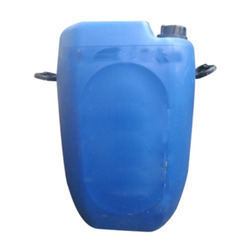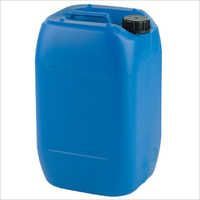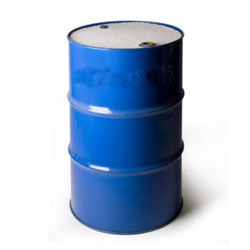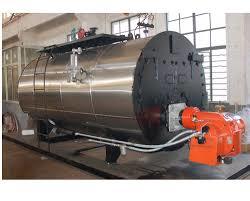PH Booster Chemical
Price 65 INR/ Unit
MOQ : 100 Units, ,
PH Booster Chemical Specification
- Storage
- Room Temperature
- Poisonous
- Yes
- Form
- Powder
- Smell
- Pungent
- Solubility
- WATER SOLUBLE
- Classification
- Inorganic Chemicals
- Grade
- Industrial Grade
- Standard
- Industrial Standard
- Type
- Liquid
- Application
- Industrial
PH Booster Chemical Trade Information
- Minimum Order Quantity
- 100 Units, ,
- FOB Port
- Mundra
- Payment Terms
- Cash Advance (CA), Cash in Advance (CID), Cheque
- Supply Ability
- 20 Units, , Per Day
- Delivery Time
- 1 Week
- Sample Available
- Yes
- Sample Policy
- Free samples are available
- Packaging Details
- GALLON
- Main Export Market(s)
- Asia, Australia, Central America, North America, South America, Eastern Europe, Western Europe, Middle East, Africa
- Main Domestic Market
- Jammu and Kashmir, Assam, Haryana, North India, Lakshadweep, Odisha, Chhattisgarh, Sikkim, Tamil Nadu, West India, Manipur, South India, Telangana, Tripura, Meghalaya, Kerala, Arunachal Pradesh, Rajasthan, Uttarakhand, East India, Chandigarh, Jharkhand, Daman and Diu, Nagaland, Pondicherry, Himachal Pradesh, Central India, West Bengal, Punjab, Karnataka, Dadra and Nagar Haveli, Madhya Pradesh, Mizoram, Bihar, Gujarat, Maharashtra, Goa, Andaman and Nicobar Islands, Andhra Pradesh, Delhi, Uttar Pradesh, All India
- Certifications
- ISO and MSME
About PH Booster Chemical
PH Booster has been formulated to be used in boilers for managing optimum hydrogen ion concentration in solution. It is known to have ability to stabilize pH of boiler without hindering with other agents used in processing. It is experienced if pH of boiler drops below 8.5 it results in corrosion. This booster stabilizes its value to optimum level to assure low operating & maintenance cost. Offered PH Booster is also admired for having ability to enhance life and performance of boilers. It is also admired for being non-toxic and odourless in nature hence does not cause any undesirable conditions.
There are several different types of pH boosters, including:
1. Alkalis: Alkalis are compounds that release hydroxide ions when dissolved in water, which increase the pH level. Common alkalis used as pH boosters include sodium hydroxide (caustic soda) and potassium hydroxide.
2. Carbonates: Carbonates are compounds that release carbonate ions when dissolved in water, which also increase the pH level. Sodium carbonate (soda ash) is a common carbonate used as a pH booster.
3. Bicarbonates: Bicarbonates are compounds that release bicarbonate ions when dissolved in water, which can increase the pH level. Sodium bicarbonate (baking soda) is a common bicarbonate used as a pH booster.
It is important to use pH boosters properly and to carefully monitor the pH level to ensure that it remains within the desired range. Overdosing with pH boosters can lead to excessively high pH levels, which can cause equipment damage and safety hazards. It is also important to follow safety guidelines and wear appropriate protective equipment when handling pH boosters, as they can be corrosive and potentially hazardous.
Frequently Asked Questions:
1. What is a pH booster?
Ans: A pH booster is a chemical additive used to increase the pH level of water or other solutions. pH stands for "potential of hydrogen" and is a measure of the acidity or alkalinity of a solution, with a pH of 7 being neutral, a pH below 7 being acidic, and a pH above 7 being alkaline.
2. Why is pH control important?
Ans: Maintaining proper pH levels is important in many industrial and municipal water treatment applications. For example, in boiler water treatment, pH control is critical to preventing corrosion and scaling, and a pH booster may be added to maintain the proper alkalinity.
3. What are some common types of pH boosters?
Ans: Common types of pH boosters include alkalis such as sodium hydroxide (caustic soda) and potassium hydroxide, carbonates such as sodium carbonate (soda ash), and bicarbonates such as sodium bicarbonate (baking soda).
4. How are pH boosters added to water or other solutions?
Ans: pH boosters are typically added to water or other solutions in small quantities and mixed thoroughly. The amount of pH booster required will depend on the starting pH level and the desired pH level.
5. Can too much pH booster be added?
Ans: Yes, too much pH booster can lead to excessively high pH levels, which can cause equipment damage and safety hazards. It is important to use pH boosters properly and to carefully monitor the pH level to ensure that it remains within the desired range.
6. Are there any safety considerations when handling pH boosters?
Ans: Yes, pH boosters can be corrosive and potentially hazardous. It is important to follow safety guidelines and wear appropriate protective equipment when handling pH boosters.
7. Can pH boosters be used in drinking water treatment?
Ans: pH boosters can be used in drinking water treatment, but it is important to use them properly and to carefully monitor the pH level to ensure that it remains within the desired range.
8. How often should pH levels be monitored?
Ans: pH levels should be monitored regularly, typically every day or every few days depending on the application and operating conditions.
9. What are some best practices for using pH boosters?
Ans: Best practices for using pH boosters include carefully monitoring the pH level, using the appropriate type and amount of pH booster, following safety guidelines, and working with trained professionals to ensure proper use and handling.


Tell us about your requirement

Price:
Quantity
Select Unit
- 50
- 100
- 200
- 250
- 500
- 1000+
Additional detail
Mobile number
Email
More Products in Boiler Chemicals Category
Oxygen Scavenger
Price 75 INR / Kilograms
Minimum Order Quantity : 100 Kilograms
Type : Other
Grade : Industrial Grade
Purity : 98%
Form : Powder
Boiler Water Treatment
Price 85.0 INR / Kilograms
Minimum Order Quantity : 500 Kilograms
Type : Boiler Water Treatment
Grade : Industrial Grade
Purity : High
Form : Liquid


 Send Inquiry
Send Inquiry




